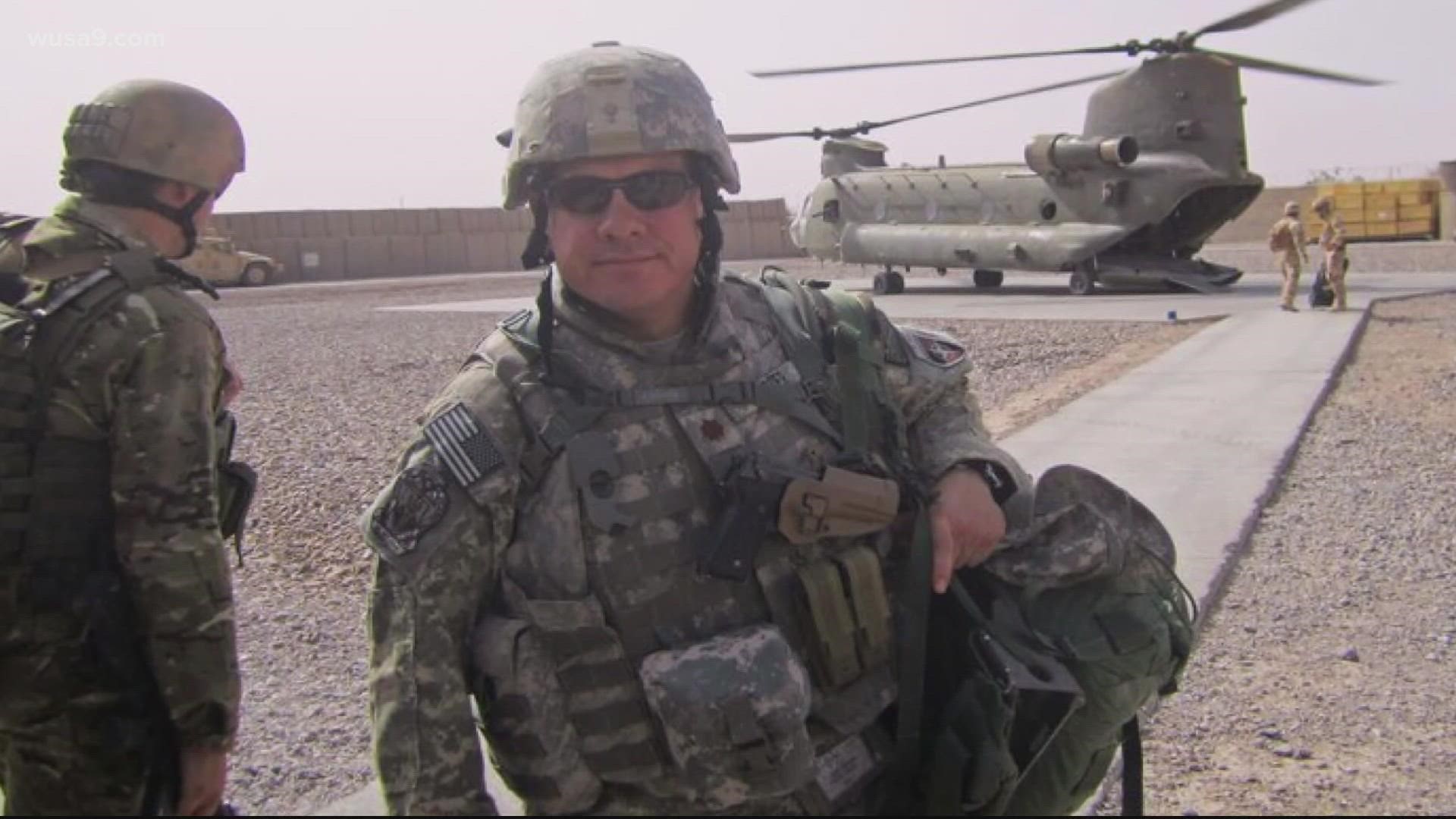WASHINGTON — The U.S. Department of Veterans Affairs is sending a message of support to veterans in the country who may feel distressed by the developments in Afghanistan.
In a message, the department said, "you are not alone."
"Veterans may question the meaning of their service or whether it was worth the sacrifices they made," the statement read. "They may feel more moral distress about experiences they had during their service. It’s normal to feel this way. Talk with your friends and families, reach out to battle buddies, connect with a peer-to-peer network, or sign up for mental health services."
Veterans such as David Upham who worked closely with the Fisher Project, Wounded Warrior Project and Veterans Health Administration said he immediately thought of the veterans when he learned of the Taliban collapsing Afghanistan.
"In my mind, they would have a hard time coping with everything, they've given their best years of their life for was potentially torn down within three weeks," Upham told WUSA9. "We still have thousands and thousands of veterans who deal with PTSD, so, we have to understand the trigger mechanisms for PTSD, and this could just be as a trigger."
The Veterans Crisis Line received a 4% increase in calls on Saturday compared to the same time last year, according to a Veterans Affairs Department spokesman. On Sunday, when images of the takeover in Kabul emerged, the calls went up by 9% compared to the previous year.
Upham knows people who served overseas and lost their lives to suicide. He knows support for others is needed now more than ever.
"I just want to say to the veterans, you served honorably, there was a noble cause and it was to bring a moment of peace in centuries of war," Upham said.
Local veterans have expressed their disapproval with the decision made by President Donald Trump and carried out by President Joe Biden to withdraw troops from the country and believed a few thousand troops could have stayed to provide a stabilizing presence.
Resources available right now:
- Veterans Crisis Line - If you are having thoughts of suicide, call 1-800-273-8255, then PRESS 1 or visit http://www.veteranscrisisline.net/
- For emergency mental health care, you can also go directly to your local VA medical center 24/7 regardless of your discharge status or enrollment in other VA health care.
- Vet Centers - Discuss how you feel with other Veterans in these community-based counseling centers. 70% of Vet Center staff are Veterans. Call 1-877-927-8387 or find one near you.
- VA Mental Health Services Guide - This guide will help you sign up and access mental health services.
- MakeTheConnection.net - information, resources, and Veteran to Veteran videos for challenging life events and experiences with mental health issues.
- RallyPoint - Talk to other Veterans online. Discuss: What are your feelings as the Taliban reclaim Afghanistan after 20 years of US involvement?
- Download VA's self-help apps - Tools to help deal with common reactions like stress, sadness, and anxiety. You can also track your symptoms over time.
- Tragedy Assistance Program for Survivors (TAPS) - Request a Peer Mentor
- VA Women Veterans Call Center - Call or text 1-855-829-6636 (M-F 8AM - 10PM & SAT 8AM - 6:30PM ET)
- VA Caregiver Support Line - Call 1-855-260-3274 (M-F 8AM - 10PM & SAT 8AM - 5PM ET)
- Together We Served - Find your battle buddies through unit pages
- George W. Bush Institute - Need help or want to talk? Check-In or call:1-630-522-4904 or email: checkin@veteranwellnessalliance.org
- Elizabeth Dole Foundation Hidden Heroes - Join the Community
- American Red Cross Military Veteran Caregiver Network - Peer Support and Mentoring
- Team Red, White & Blue - Hundreds of events weekly. Find a chapter in your area.
- Student Veterans of America - Find a campus chapter to connect with.
- Team Rubicon - Find a local support squad
Veterans who served in Afghanistan may be experiencing a range of challenging emotions related to the U.S withdrawal from the country and the events unfolding now, the U.S. Department of Veterans Affairs said. Veterans who served during other conflicts may also be feeling strong emotions as they may be reminded of their own deployment experiences.
To learn more, click this link.

